Developmental neuroscience
Recent articles
Infant visual system categorizes common objects by 2 months of age
Brain activity patterns in the ventral visual cortex appear to distinguish images across 12 categories, including birds and trees, longitudinal functional MRI scans suggest.
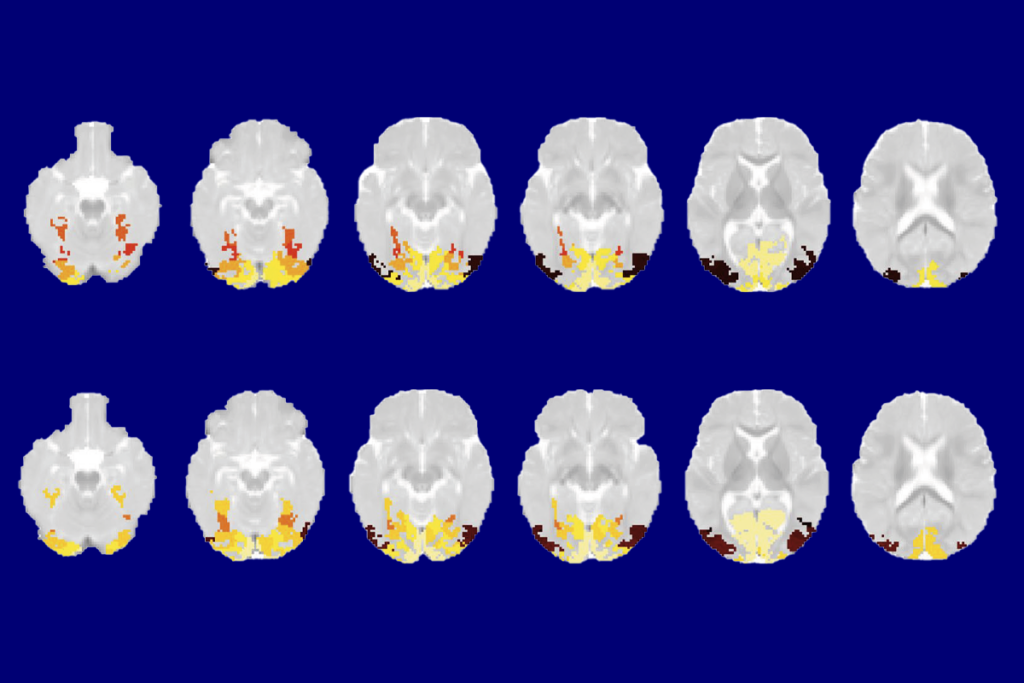
Infant visual system categorizes common objects by 2 months of age
Brain activity patterns in the ventral visual cortex appear to distinguish images across 12 categories, including birds and trees, longitudinal functional MRI scans suggest.
Microglia implicated in infantile amnesia
The glial cells could explain the link between maternal immune activation and autism-like behaviors in mice.

Microglia implicated in infantile amnesia
The glial cells could explain the link between maternal immune activation and autism-like behaviors in mice.
Oligodendrocytes need mechanical cues to myelinate axons correctly
Without the mechanosensor TMEM63A, the cells cannot deposit the appropriate amount of insulation, according to a new study.
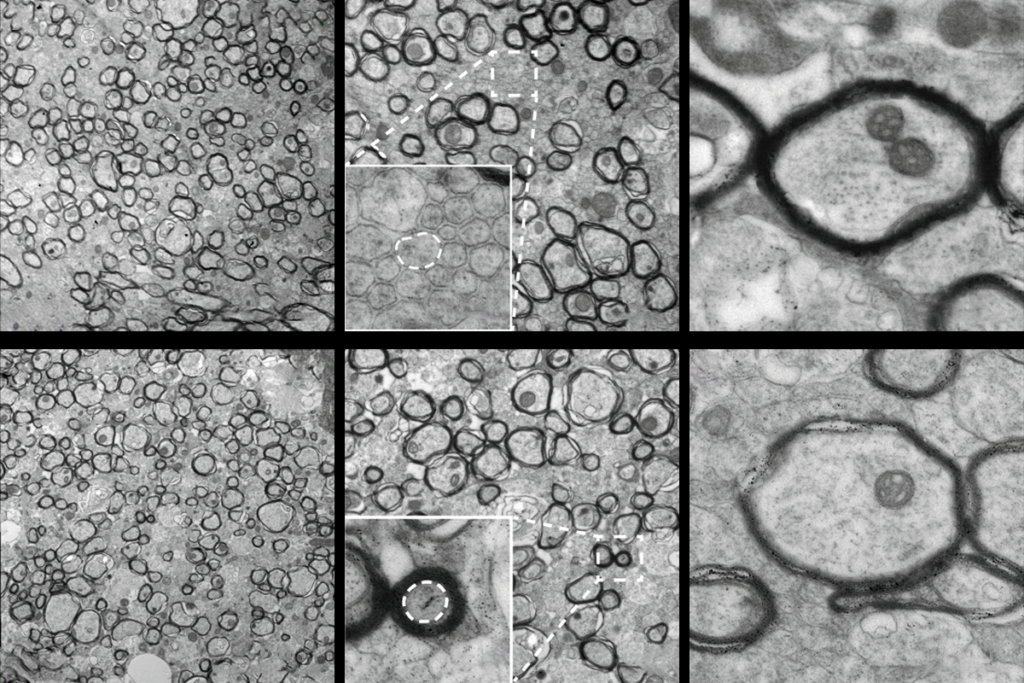
Oligodendrocytes need mechanical cues to myelinate axons correctly
Without the mechanosensor TMEM63A, the cells cannot deposit the appropriate amount of insulation, according to a new study.
Cell atlas cracks open ‘black box’ of mammalian spinal cord development
The atlas details the genetics, birth dates and gene-expression signatures of roughly 150 neuron subtypes in the dorsal horn of the mouse spinal cord.
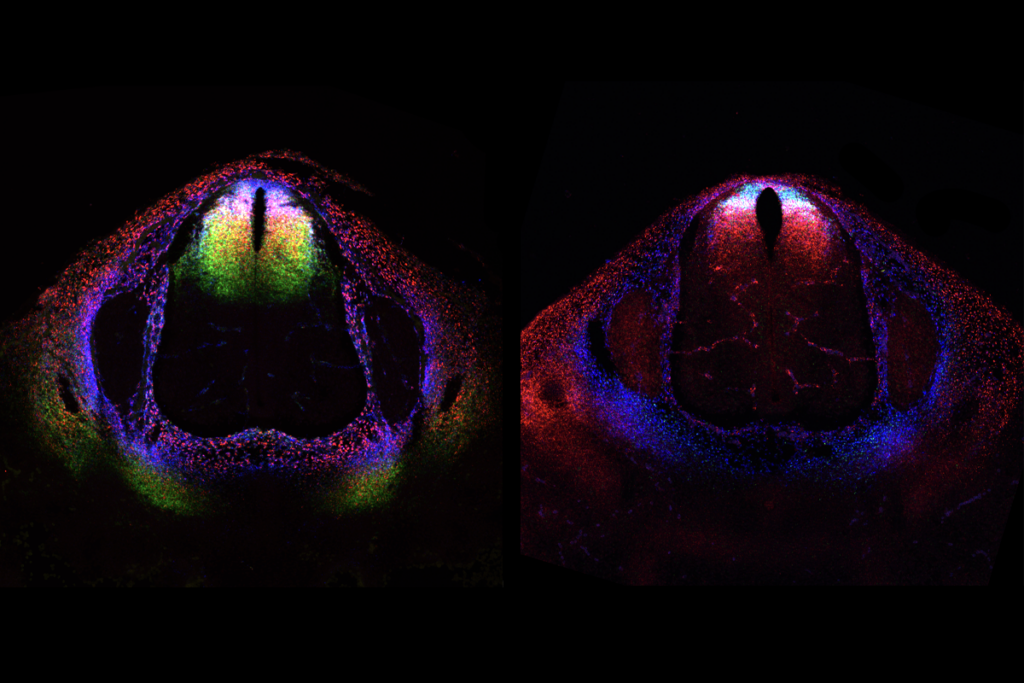
Cell atlas cracks open ‘black box’ of mammalian spinal cord development
The atlas details the genetics, birth dates and gene-expression signatures of roughly 150 neuron subtypes in the dorsal horn of the mouse spinal cord.
Prenatal viral injections prime primate brain for study
The approach makes it possible to deploy tools such as CRISPR and optogenetics across the monkey brain before birth.
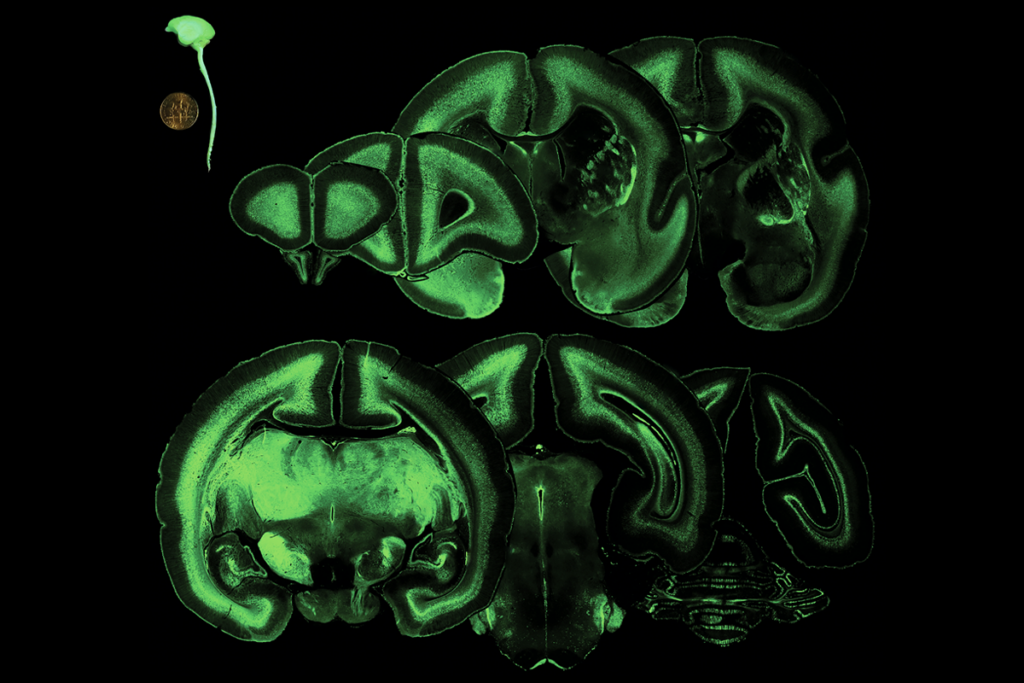
Prenatal viral injections prime primate brain for study
The approach makes it possible to deploy tools such as CRISPR and optogenetics across the monkey brain before birth.
Bringing African ancestry into cellular neuroscience
Two independent teams in Africa are developing stem cell lines and organoids from local populations to explore neurodevelopmental and neurodegenerative conditions.
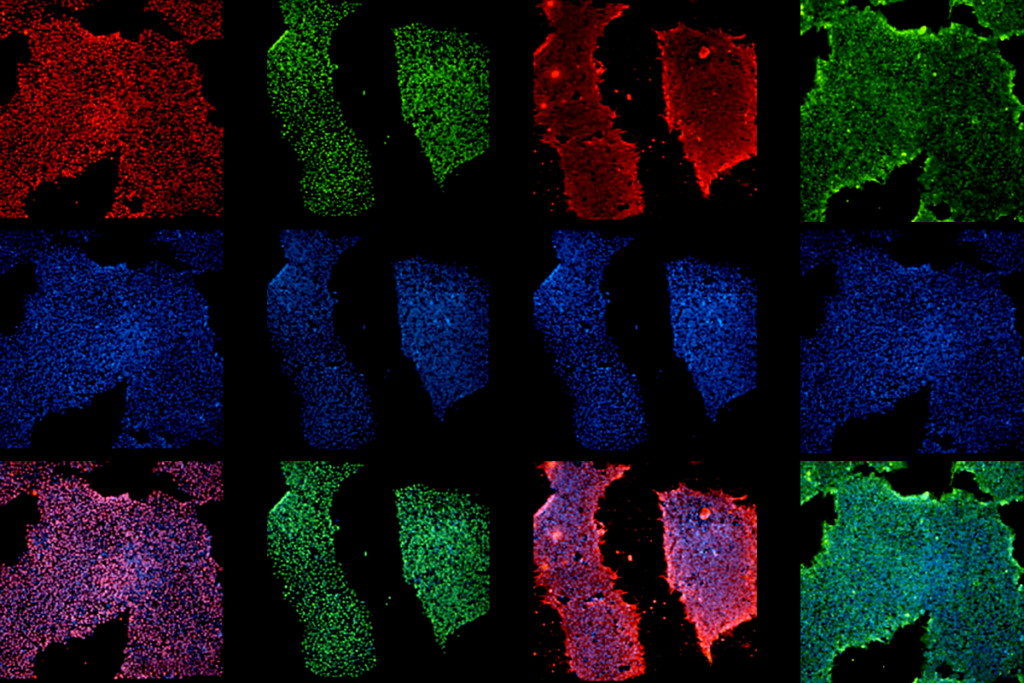
Bringing African ancestry into cellular neuroscience
Two independent teams in Africa are developing stem cell lines and organoids from local populations to explore neurodevelopmental and neurodegenerative conditions.
Waves of calcium activity dictate eye structure in flies
Synchronized signals in non-neuronal retinal cells draw the tiny compartments of a fruit fly’s compound eye into alignment during pupal development.
Waves of calcium activity dictate eye structure in flies
Synchronized signals in non-neuronal retinal cells draw the tiny compartments of a fruit fly’s compound eye into alignment during pupal development.
Microglia nurture young interneurons
The immune cells secrete a growth factor that “sets the supply of GABAergic interneurons in the developing brain.”
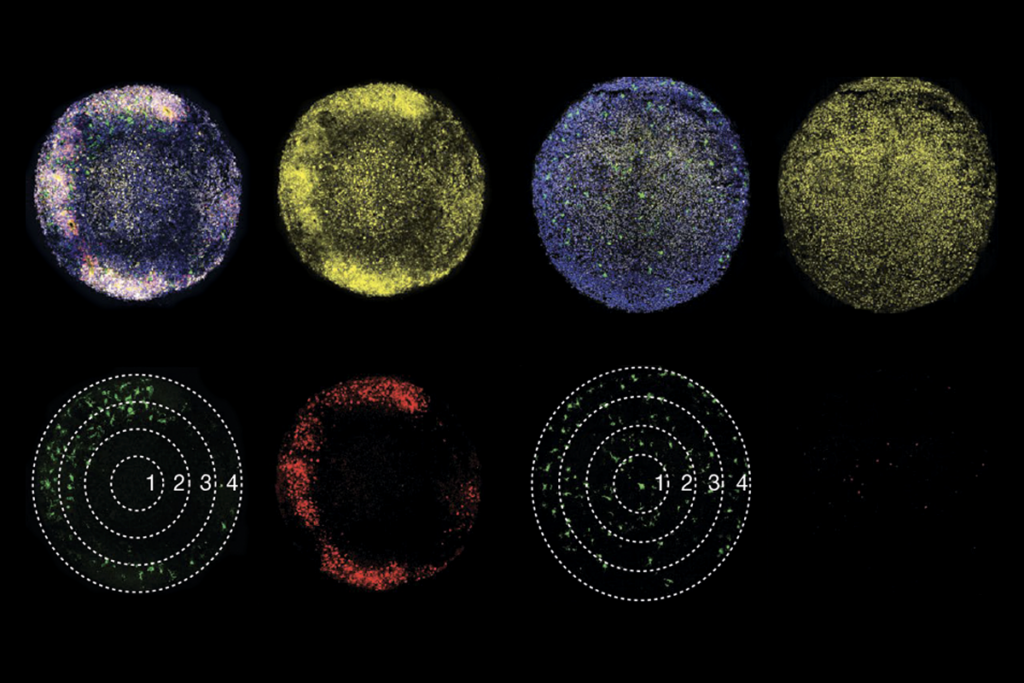
Microglia nurture young interneurons
The immune cells secrete a growth factor that “sets the supply of GABAergic interneurons in the developing brain.”
Cell ‘antennae’ link autism, congenital heart disease
Variants in genes tied to both conditions derail the formation of cilia, the tiny hair-like structure found on almost every cell in the body, a new study finds.
Cell ‘antennae’ link autism, congenital heart disease
Variants in genes tied to both conditions derail the formation of cilia, the tiny hair-like structure found on almost every cell in the body, a new study finds.
Keith Hengen and Woodrow Shew explore criticality and cognition
The two discuss their evolving views of brain criticality as a central organizing principle of cognition, development and learning.
Keith Hengen and Woodrow Shew explore criticality and cognition
The two discuss their evolving views of brain criticality as a central organizing principle of cognition, development and learning.
Explore more from The Transmitter
Neuro’s ark: Spying on the secret sensory world of ticks
Carola Städele, a self-proclaimed “tick magnet,” studies the arachnids’ sensory neurobiology—in other words, how these tiny parasites zero in on their next meal.

Neuro’s ark: Spying on the secret sensory world of ticks
Carola Städele, a self-proclaimed “tick magnet,” studies the arachnids’ sensory neurobiology—in other words, how these tiny parasites zero in on their next meal.
Autism in old age, and more
Here is a roundup of autism-related news and research spotted around the web for the week of 2 March.

Autism in old age, and more
Here is a roundup of autism-related news and research spotted around the web for the week of 2 March.
Lack of reviewers threatens robustness of neuroscience literature
Simple math suggests that small groups of scientists can significantly bias peer review.

Lack of reviewers threatens robustness of neuroscience literature
Simple math suggests that small groups of scientists can significantly bias peer review.